Basic counting skills Normal Math Worksheets for Ages 6-8
5 filtered results
-
From - To
Enhance your child's counting skills with our engaging normal math worksheets designed for ages 6-8! These worksheets are perfect for young learners, offering a variety of fun and interactive exercises that focus on basic counting concepts. Children will practice counting objects, understanding number sequences, and more, all while enjoying vibrant illustrations and relatable themes. Whether at home or in the classroom, our worksheets foster a strong mathematical foundation, boost confidence, and encourage a love for learning. Discover how simple and enjoyable mastering counting can be, ensuring your child develops essential skills for future math success! Start counting the fun today!
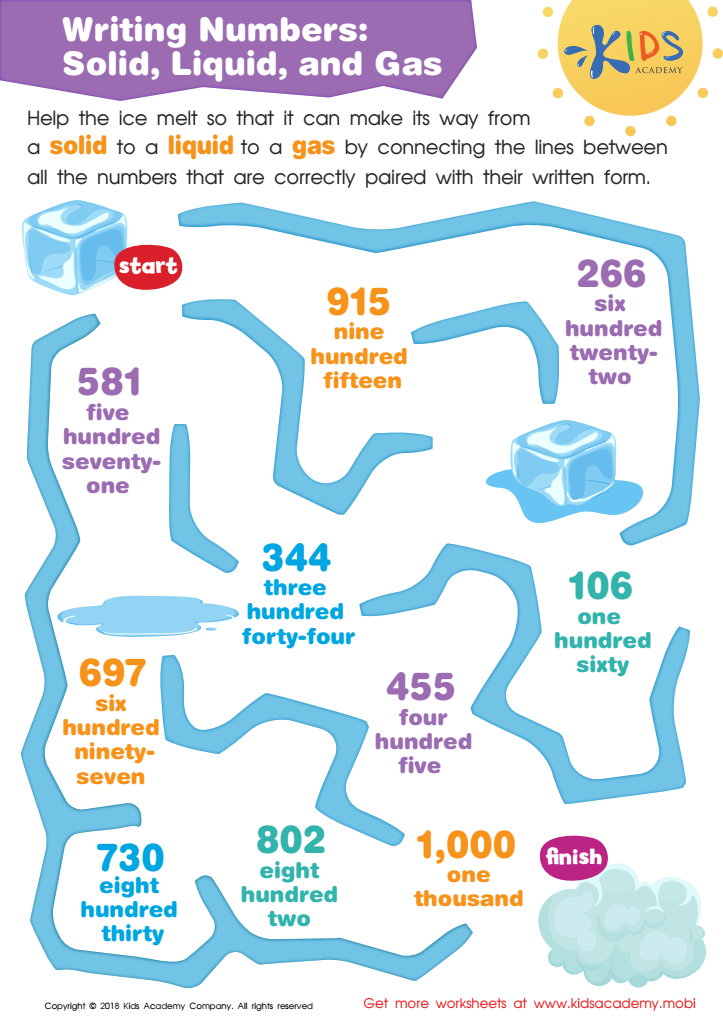

Solid, Liquid, and Gas Writing Numbers Worksheet
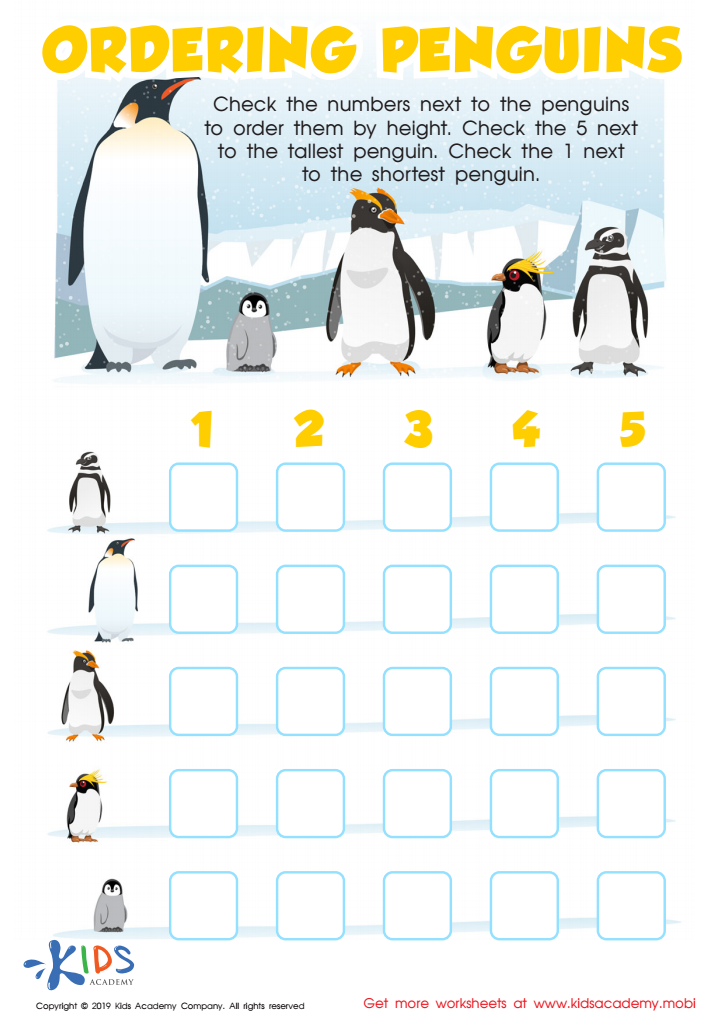

Ordering Penguins Worksheet
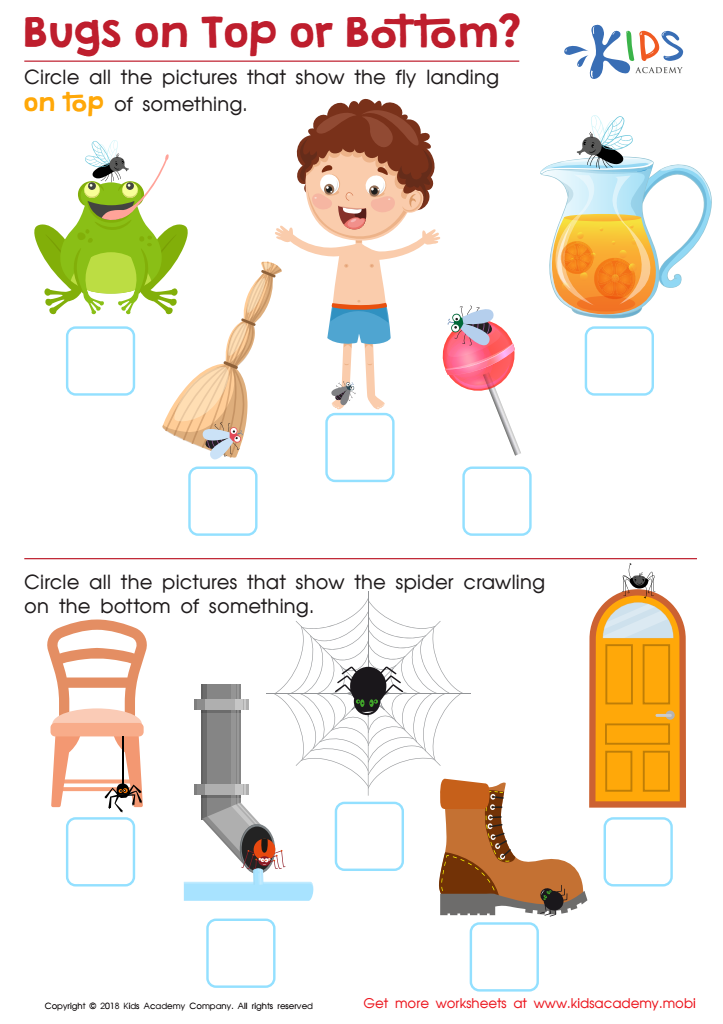

Bugs on Top or Bottom? Worksheet
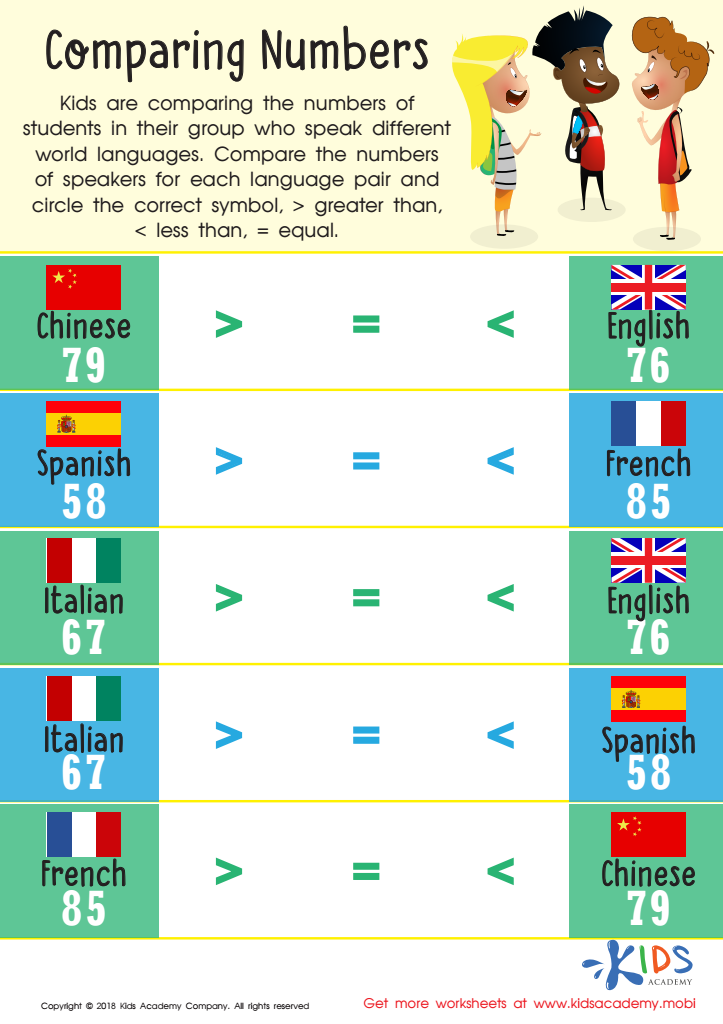

Comparing Numbers Worksheet for 1st Grade
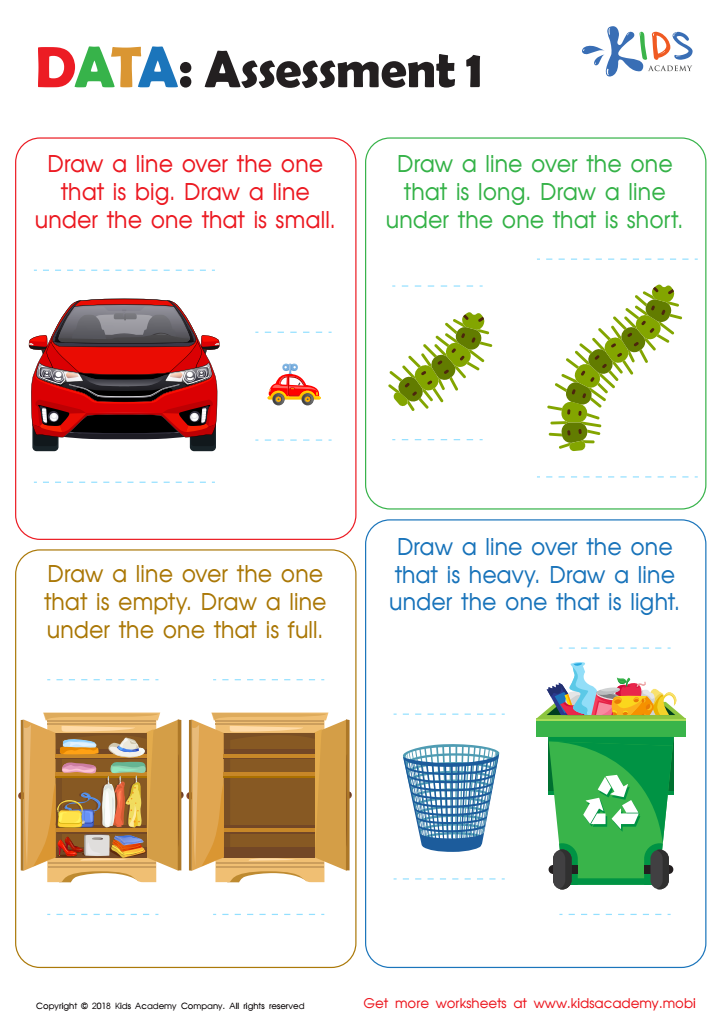

Data: Assessment 1 Worksheet
Basic counting skills are fundamental for children aged 6-8, serving as the groundwork for all future math learning and problem-solving. At this developmental stage, children transition from rote memorization to more meaningful understanding of numbers, which lays the foundation for arithmetic operations—addition, subtraction, and even more advanced concepts later on.
Parents and teachers should care about nurturing these skills because they are crucial for several reasons. First, strong counting abilities boost a child's confidence and motivation in learning math, fostering a positive attitude toward the subject. Secondly, basic counting skills encourage critical thinking and problem-solving abilities. As children learn to manipulate numbers, they also strengthen their cognitive skills, which are applicable across disciplines. Moreover, counting forms an integral part of everyday life, such as understanding time, managing money, and tracking items, making these skills practical and valuable.
Ultimately, instilling robust counting skills in young learners promotes academic success and prepares them for more complex mathematical reasoning, making it imperative for parents and teachers to prioritize this foundational concept in early education.
 Assign to My Students
Assign to My Students






.jpg)














